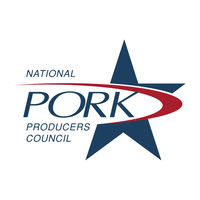
National Pork Producers Council
WASHINGTON, D.C., May 28, 2020 – COVID-related challenges have taken a severe financial and emotional toll on U.S. hog farmers, and rapid federal government assistance is needed to help thousands of pork producers weather this crisis. At a press briefing hosted by the National Pork Producers Council (NPPC) today, four pork producers addressed the crisis on their farms and called on the U.S. Senate to expeditiously adopt livestock agriculture provisions included in COVID-relief legislation recently passed by the U.S. House of Representatives.
The impact of COVID-19 has caused hog values to plummet, creating a financial disaster for pork producers nationwide who face a collective $5 billion loss for the remainder of the year. Additionally, U.S. pork producers face staggering costs for the millions of hogs that will be euthanized as pigs back up on farms due to ongoing bottlenecks in the pork supply chain.
Livestock agriculture provisions included in the House-passed HEROES Act would provide much-needed relief measures to U.S. pork producers. NPPC urges the Senate to quickly adopt these provisions in companion legislation:
- Compensation for euthanized livestock that can’t be processed into the food supply due to COVID-related packing plant capacity reductions;
- Expanded direct payments—without payment limitations—to livestock farmers who have suffered severe losses as COVID-related market disruptions have caused the value of their livestock to plummet;
- Increased funding for animal health surveillance and laboratories, which have been tapped to perform COVID-19 testing during this human health emergency; and
- Mental health assistance for our farmers who face an unimaginable animal welfare crisis.
“All pork producers are hurting, and immediate action is imperative,” said NPPC President Howard “AV” Roth, a hog farmer from Wauzeka, Wisconsin. “We need the Senate to act quickly on companion legislation to provide this critical lifeline to hog farmers. Without prompt government assistance, many generational family farms will go bankrupt. This will destroy the livelihood of our communities and lead to consolidation and contraction in a farm sector that generates more than 500,000 jobs and $23 billion in personal income,” he added.
“American pork producers are resilient people….We take an incredible amount of pride in raising a healthy product,” said Kevin Hugoson, a fourth-generation hog farmer from Granada, Minn. Unfortunately, the challenges brought by COVID-19 have caused pork producers to lose more than $60 per animal. “There is no doubt, whether small or large, there’s definitely going to be a change in the industry, with people not going forward and being able to survive this crisis….That’s why it’s so important for legislators to realize what a huge financial impact this is having on the pork industry.”
Mike Paustian, a sixth-generation hog farmer from Walcott, Iowa, highlighted tremendous uncertainty for pork producers. “Our farm has been through a lot over the years and we’ve always been able to work our way through it. But it is different this time because of the magnitude of the disruption to the supply chain….It’s very frustrating and hard to make long-term plans for our farm, not knowing what next week is going to look like, let alone three or six months down the road,” he said. With continued uncertainty for pork producers, “more farms are just hanging on by a thread and eventually are going to have to call it quits” unless there is immediate and significant government assistance, he added.
Chad Leman, a third-generation hog farmer from Eureka, Ill., highlighted the difficult decisions that many farms are facing in having to euthanize pigs due to supply bottlenecks. “These are difficult times when you don’t have a home for animals….There’s just not enough capacity to turn pigs into pork,” he said. Lawmakers need to understand the scope of the problem for hog producers, he explained. “This is not a few hundred pigs. This is millions of pigs that are backed up right now,” he said. Pork producers are “going to need help to weather this storm because of the size of the problem,” he added.
